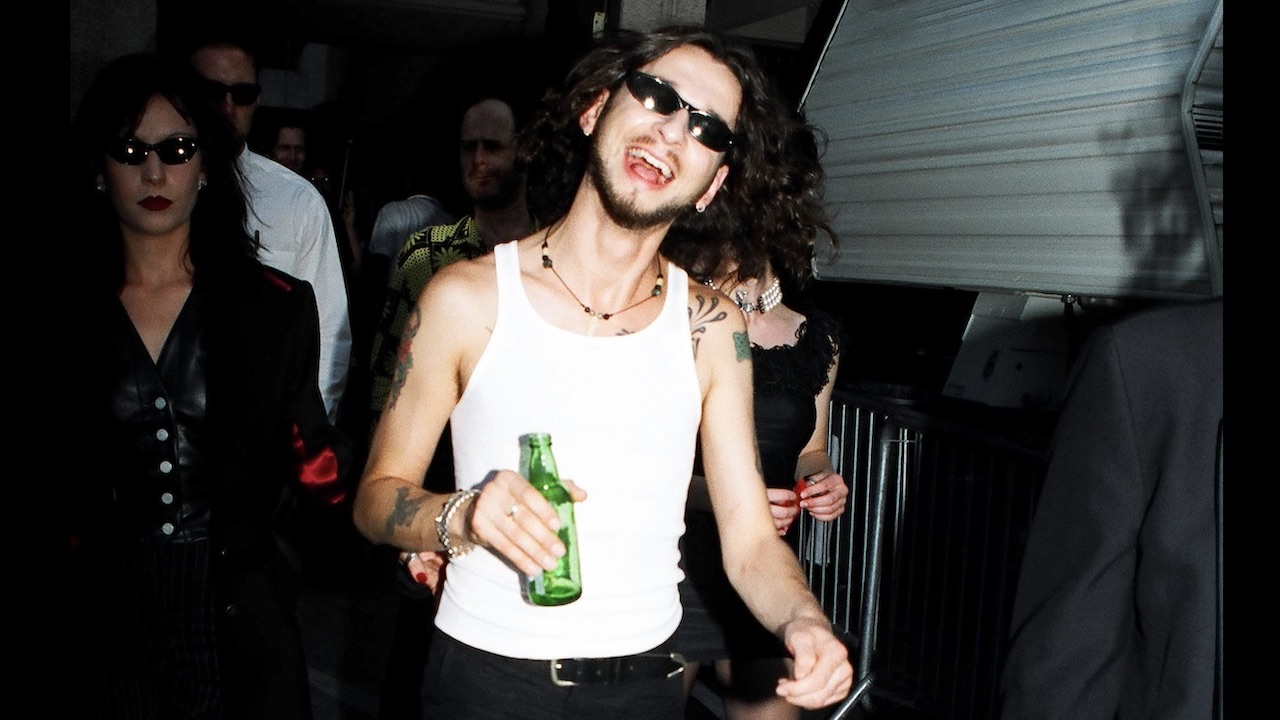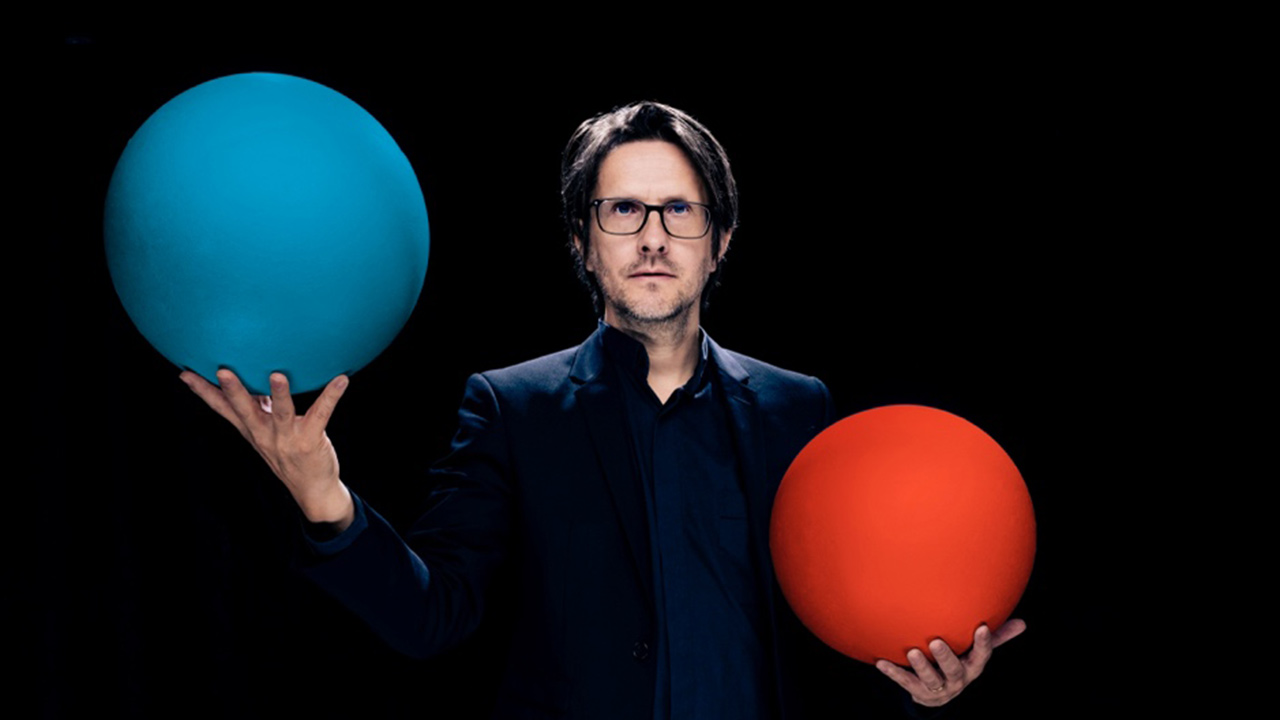“The paramedics told me I should have been dead. I had enough heroin and cocaine in me to kill a horse.” In the '90s, Depeche Mode's Dave Gahan embarked upon a drug-fuelled “death trip”, and very nearly arrived at his intended destination
On May 28, 1996, Depeche Mode vocalist Dave Gahan 'died' for two minutes in a Los Angeles hospital. He woke up handcuffed to a policeman

Select the newsletters you’d like to receive. Then, add your email to sign up.
You are now subscribed
Your newsletter sign-up was successful
Want to add more newsletters?

Every Friday
Louder
Louder’s weekly newsletter is jam-packed with the team’s personal highlights from the last seven days, including features, breaking news, reviews and tons of juicy exclusives from the world of alternative music.

Every Friday
Classic Rock
The Classic Rock newsletter is an essential read for the discerning rock fan. Every week we bring you the news, reviews and the very best features and interviews from our extensive archive. Written by rock fans for rock fans.

Every Friday
Metal Hammer
For the last four decades Metal Hammer has been the world’s greatest metal magazine. Created by metalheads for metalheads, ‘Hammer takes you behind the scenes, closer to the action, and nearer to the bands that you love the most.

Every Friday
Prog
The Prog newsletter brings you the very best of Prog Magazine and our website, every Friday. We'll deliver you the very latest news from the Prog universe, informative features and archive material from Prog’s impressive vault.
In the mid '90s, Depeche Mode frontman Dave Gahan asked builders working on his Los Angeles home to create a special chamber for his personal use, accessible via the bedroom he shared with his second wife, the band's publicist Teresa Conway. The Blue Room, as it was known, was exclusively reserved for the vocalist's drug taking. Gahan once spent three whole weeks alone in this room, with a friend checking in on him now and then, to see if he needed anything/was still alive.
"At the time, I was romanticising about the idea of death and just slipping away," Gahan recalled in an interview with Arena magazine, published in April 1997. "I didn’t like what I’d become and I didn’t know how to end it."
In the spring of 1996, however, Gahan had come perilously close to ending it. Over Memorial Day weekend, in the early hours of May 28, the singer injected a syringe full of cocaine and heroin - popularly known to US drug users as a 'speedball' - into his arm in the bathroom of his suite at West Hollywood's discreet, luxurious Sunset Marquis hotel. A seasoned drug addict by this point, the singer instinctively knew that something was wrong, and told his dealer, "I’m not feeling well." Within 15 minutes, he had passed out on the bathroom floor, after suffering a heart attack.
Talking to The Guardian newspaper past year, Gahan recalled “There was complete blackness and this feeling I’ve never felt before of utter terror. No sound in the room, nothing, but the blackness felt close to you."
Gahan had first experimented with heroin in London in 1979, but it wasn't until he moved to Los Angeles in 1991 that the opioid became his drug of choice. By the time Depeche Mode completed the 14-month touring cycle for their eighth studio album, the alt. rock influenced Songs of Faith and Devotion, none of the band members were speaking to one another, and their singer was a full-blown addict, engaged in what he would later term a "death trip". When the Essex band regrouped in New York to work upon their ninth album, Gahan was sent home after just two days in the studio, with his bandmates telling him that they were giving him one final time out to get his shit together, or else. He took their concern badly.
"When I went back to Los Angeles," he told Arena, “I used like I’d never used before. I went mental.”
For two minutes on the morning of May 28, 1996, Dave Gahan was technically dead.
"The paramedics told me that I should have been dead," he recalled in Arena. “They said that I had enough heroin and cocaine in me to kill a horse."
When Gahan woke up in Cedars Sinai hospital he was handcuffed to a police officer, and charged with possession of the cocaine that his panicked dealer had failed to remove from the hotel room.
Speaking to the LA Times from a drug rehab centre in the summer of 1996, Gahan acknowledged that he was lucky to be alive.
"When I left the hospital, I said to someone that I’d overdosed, and they said, ‘David, you died. They revived you three times.’ I could have had permanent brain damage. When I think about the insanity of this little powder--three minutes of euphoria. . . . You don’t have to be a lifetime user. It only takes one time. People seem to believe the myth that if you just do it once you’re fine, and now many people seem to be going straight to heroin, bypassing pot and all that and going straight to the devil. It’s really scary."
"I don’t want to be any kind of preacher," he added. "I’m in a rock ‘n’ roll band and I love to do that and just want to be David."
The latest news, features and interviews direct to your inbox, from the global home of alternative music.

A music writer since 1993, formerly Editor of Kerrang! and Planet Rock magazine (RIP), Paul Brannigan is a Contributing Editor to Louder. Having previously written books on Lemmy, Dave Grohl (the Sunday Times best-seller This Is A Call) and Metallica (Birth School Metallica Death, co-authored with Ian Winwood), his Eddie Van Halen biography (Eruption in the UK, Unchained in the US) emerged in 2021. He has written for Rolling Stone, Mojo and Q, hung out with Fugazi at Dischord House, flown on Ozzy Osbourne's private jet, played Angus Young's Gibson SG, and interviewed everyone from Aerosmith and Beastie Boys to Young Gods and ZZ Top. Born in the North of Ireland, Brannigan lives in North London and supports The Arsenal.
